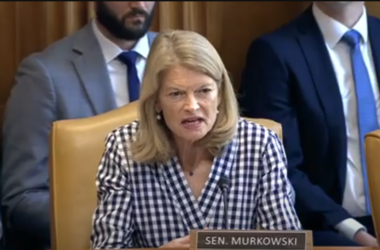A piece of legislation became law without the Governor’s signature earlier this month. House Bill 184 codifies the Alaska Tribal Child Welfare Compact, which began under the Walker Administration. It was created to address and improve inequities in the state’s child welfare system.
Rep. Tiffany Zulkosky (Bethel) told the House Floor last year on this legislation:
“House Bill 184 is a two-sentence bill that essentially looks to cement into state law providing a firm anchor for an agreement between the state and tribes that has been ongoing and in effect for five years.”
Rep. Zulkosky addressed concern one colleague had:
“There’s a lot of good work when we talk about systemic innovation and how do we improve the state services and programs that are offered throughout Alaska. I believe that the government closest to the people serves the people best. In this particular situation, we’re talking about child welfare and cementing the support and work that’s ongoing from tribes with partnership with the state into state law. The advantage there is not having to start over and reset with every administration or under any executive initiative. This was an initiative that began under the walker administration that continues under the Dunleavy Administration that the director of Office of Children’s Services indicated intends to be continued.”
The Compact gained national recognition as a model for other states. It encouraged those participating to provide quality children and family services as close to home as possible. Tribes and Tribal organizations can leverage resources, while incorporating cultural and traditional values into services. By doing so, it would provide a stronger and more relevant child welfare system in Alaska.
The law allows the state and Tribes to continue providing services to families across the state when administrations change.
Transcribed audio courtesy of KTOO 360TV.






